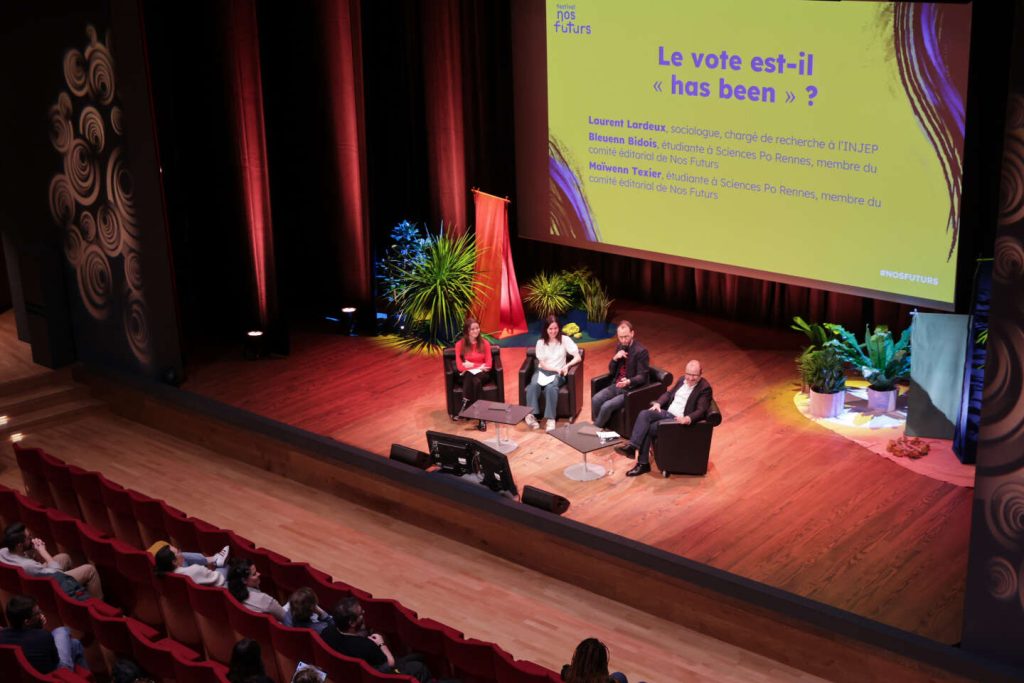The 3rd edition of the Nos futurs festival, organized from March 21 to 24 in Rennes, gave “the voice to the next generation”. Under the guidance of Emmanuel Davidenkoff, editor-in-chief at Le Monde, a large group of students interviewed observers of our society on democracy with the upcoming European elections in mind: is voting a thing of the past? Should we really be concerned about abstention among young people? Are they the only ones affected? Why is there such a lack of interest in voting? What other forms of engagement are possible? The debate, recorded in the presence of sociologist Manuel Cervera-Marzal, sociologist Laurent Lardeux, and philosopher Sandra Laugier, aimed to address these questions.
During the festival, all the exchanges were captured in podcast format for those who couldn’t attend. Sandra Laugier, when asked about her definition of democracy, stated that it is a regime in which everyone can express themselves and where there is equality among all individuals. She pointed out that the French National Assembly is not truly representative of the diversity of the population, especially in terms of social diversity. Laurent Lardeux mentioned the tripartition of the political field in 2022 between a liberal vote (Emmanuel Macron), a national conservative vote (Marine Le Pen), and a social-ecologist vote (Jean-Luc Mélenchon). He emphasized that young people are more polarized on cultural issues like authority or immigration, but not all of them vote for extremes, highlighting that some may vote for the extreme right as a form of protest.
When asked about whether abstention is a danger for democracy, Laurent Lardeux agreed, stating that decisions are primarily based on electoral results. Therefore, when certain population groups do not vote, they risk being left out of the political landscape. Not being represented in institutions poses a democratic danger. The discussion tackled the issue of why young people in France vote the way they do and how this impacts the democratic process. The importance of youth engagement in politics and the potential consequences of abstaining from voting were highlighted throughout the festival.
The participants in the debate, including sociologists and philosophers, engaged in a dialogue to explore the current state of democracy in France and the role of young people in shaping its future. The festival aimed to encourage reflection on the political landscape and the importance of active citizenship. By discussing the challenges facing democratic participation, the speakers sought to inspire young people to become more involved in the decision-making process and emphasize the significance of voting. The recording of the event in podcast format allowed for a wider audience to access and engage with these important discussions and reflections on democracy and youth engagement in political processes.
Overall, the Nos futurs festival served as a platform for meaningful discussions on democracy, voting, and youth engagement in politics. By bringing together experts and students to explore these topics, the event aimed to inspire a new generation of active citizens who are invested in shaping the future of democracy in France. Through open dialogue and reflection on the challenges and opportunities for democratic participation, the festival sought to foster a deeper understanding of the importance of voting and engagement in the political process among young people. The recorded exchanges from the festival continue to serve as a valuable resource for those interested in exploring these critical issues further.















